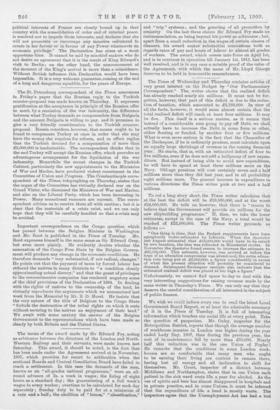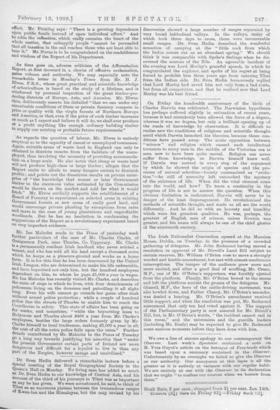We wish we could induce every one to read the
latest Local Government Board Report, or at least the admirable summary of it in the Times of Tuesday. It is full of interesting, information which touches our social life at every point. Take the question of pauperism. Mr. Oxley, inspector for the Metropolitan district, reports that though the average number of workhouse inmates in London was higher during the year ended Lady Day, 1907, than during the previous year, the cost of in-maintenance fell by more than £50,000. Nearly half this reduction was in the one Union of Poplar He remarks that the conditions in some London work- houses are so comfortable that many men who ought to be earning their living are content to remain there, having lost all energy and all inclination to shift for themselves. Mr. Court, inspector of a district between Middlesex and Northampton, states that in one Union each patient in the sick ward costs 53s. a year for alcohol. As the use of spirits and beer has almost disappeared in hospitals and in private practice, and in some Unions, it must be inferred that the expenditure of 53s. a head is mostly waste. The inspectors agree that •the Unemployment Act has had a bad
effect. Mr. Fleming says : " There is a growing dependence upon public funds instead of upon individual effort." And he adds the resection, which really contains the heart of the whole matter, that unhappily people "cannot be persuaded that all taxation in the end reaches those who are least able to bear it." Mr. Burns is to be congratulated on the readableness and wisdom of the Report of his Department.










































 Previous page
Previous page